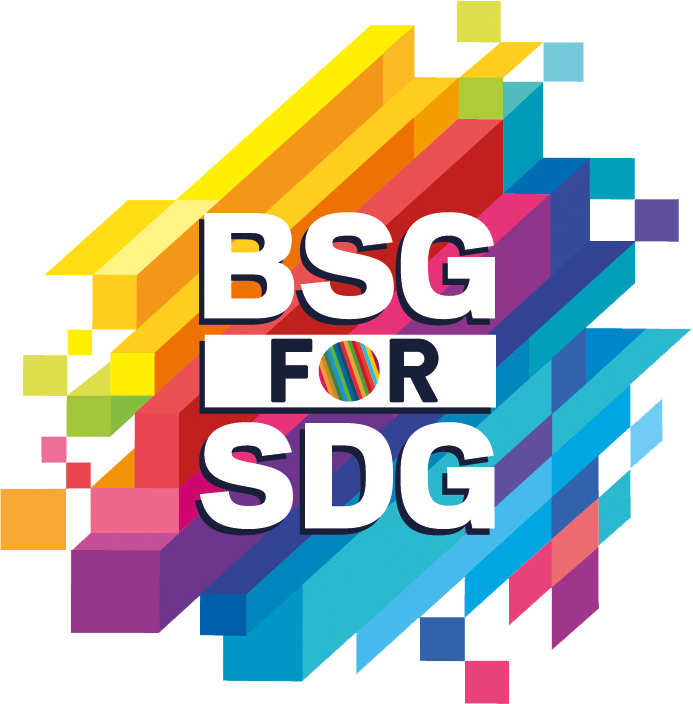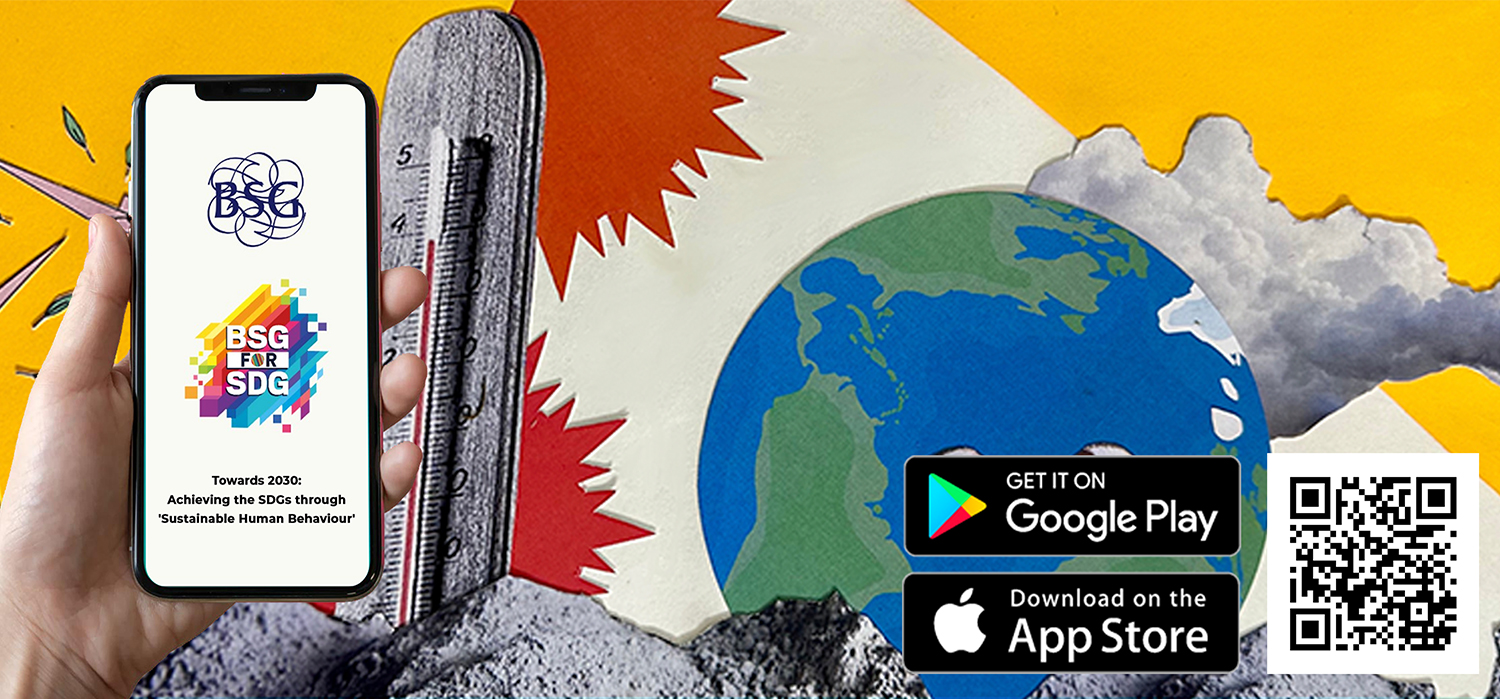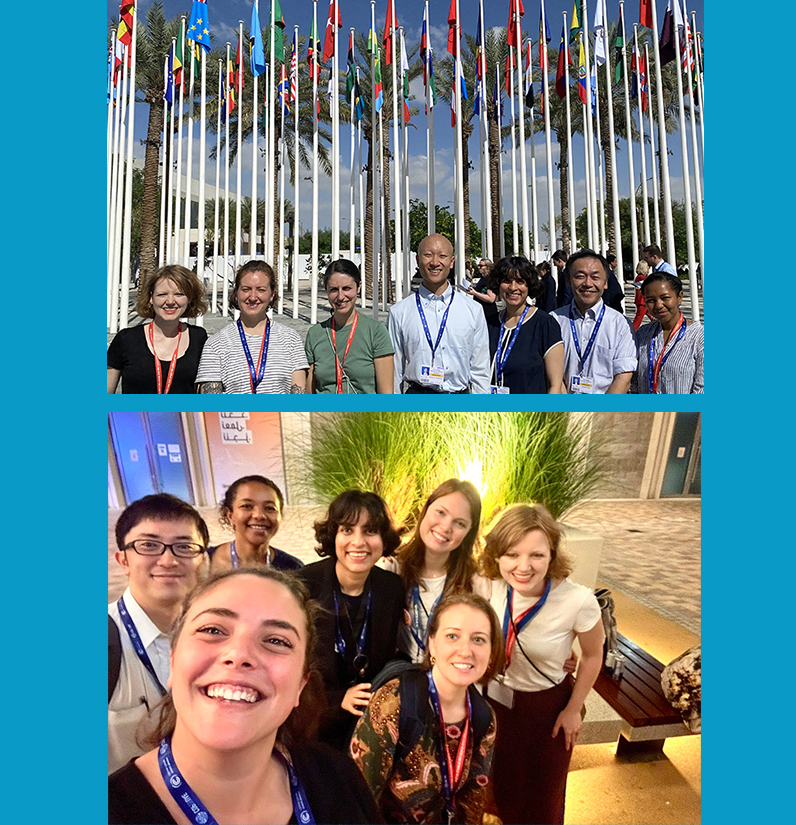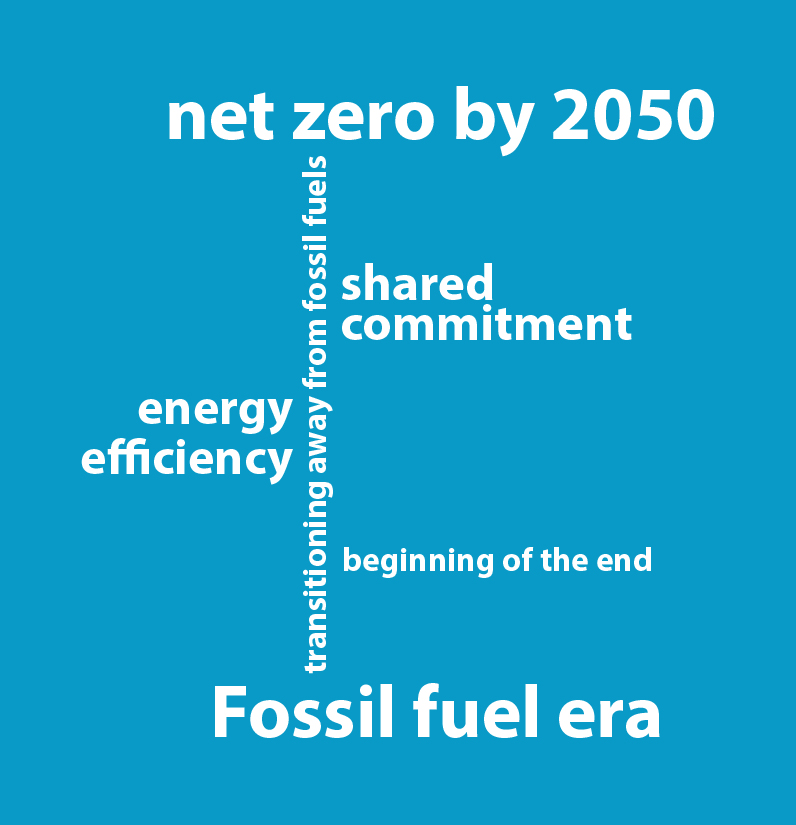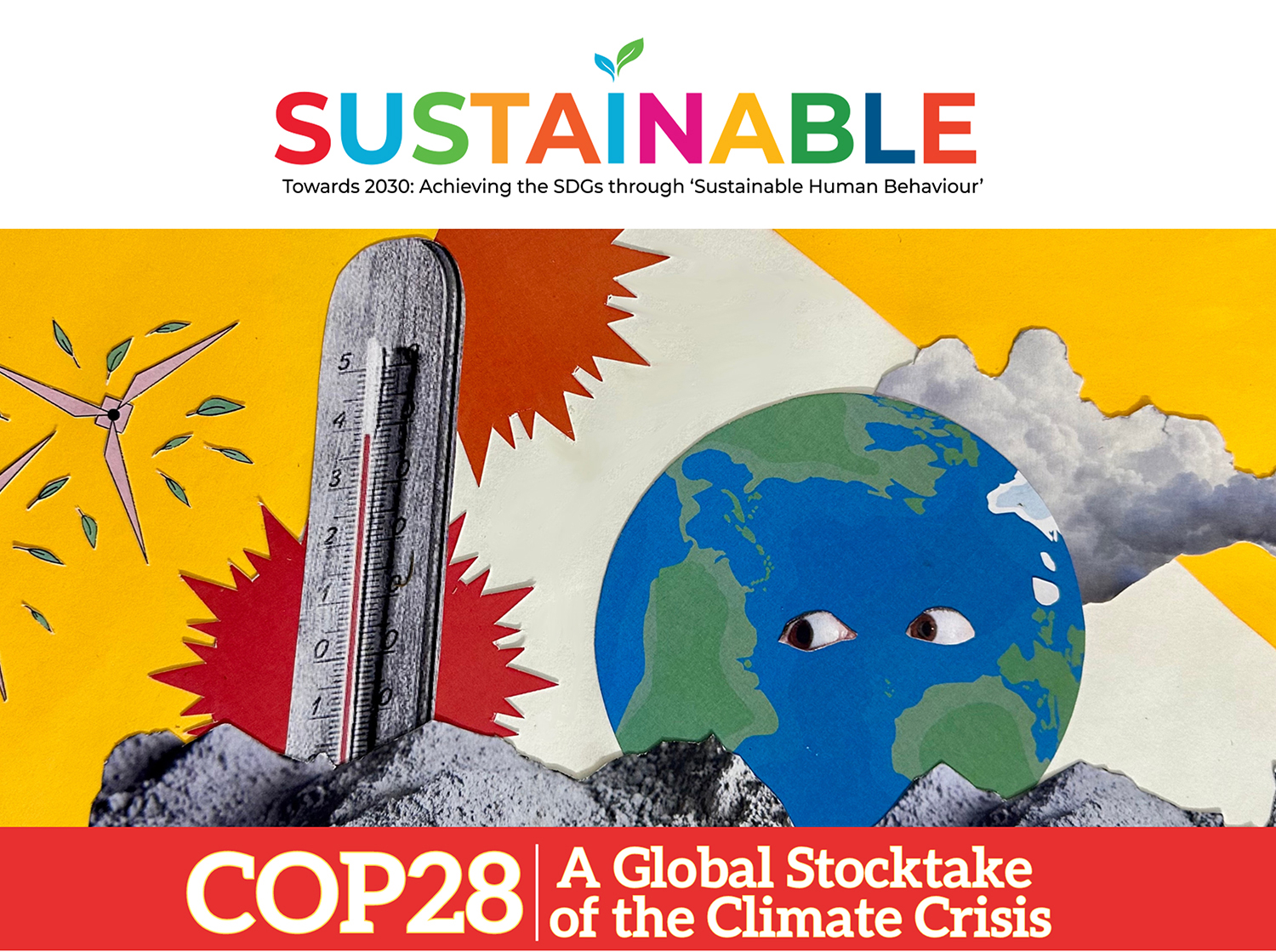
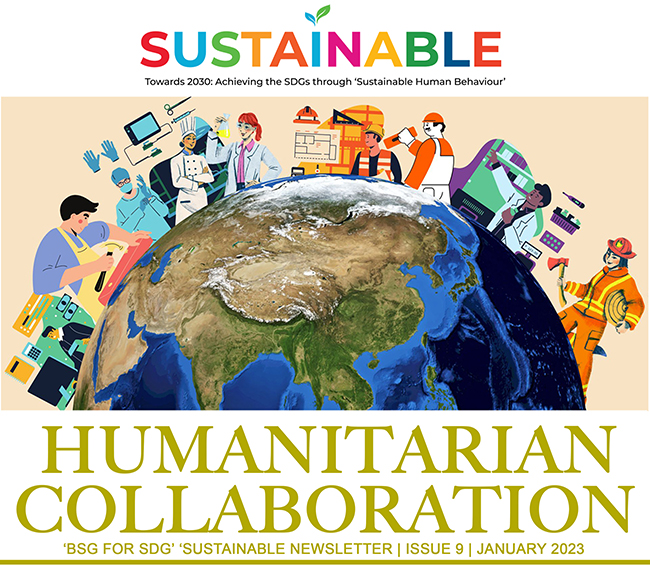
Greetings from BSG Chairperson Mr. Vishesh Gupta
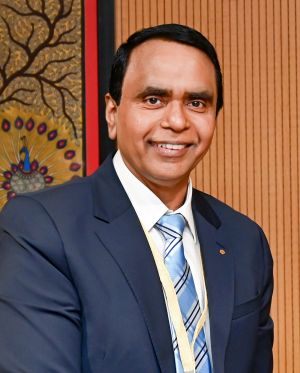
Dear readers,
Warm wishes to you and your families for a happy and healthy New Year 2024!
As the new year commences, we often set numerous resolutions to lead a better life. While making fresh commitments is crucial, it is equally important to reflect on our progress in fulfilling the resolutions from previous years.
The recently concluded 28th Conference of the Parties (COP) in Dubai, UAE, from 30 November to 12 December 2023 did just that! It served as the world’s first global stocktake of the climate crisis. It gave us all a reality check on where we are standing in our commitment to combat climate change, which was pledged by 196 countries in The Paris Agreement in 2015.
Many decisions were taken during COP28, which you can explore further in the content of this month’s issue of the ‘Sustainable’ Newsletter, which focuses on the theme: ‘COP28 – A Global Stocktake of the Climate Crisis’.
However, my question to you, dear readers, is: Is combating climate change solely the responsibility of Parties and Policies? Aren’t we all accountable for the world we have created? Shouldn’t we all take ownership to transform our world, instead of endlessly waiting for someone else to take the initiative?
This new year, let’s assess our habits and lifestyle and introspect—Are our actions sustainable or unsustainable? Do they harm the environment or any form of life? Is there anything we can do differently to preserve our planet?
This introspection lies at the heart of ‘sustainable human behaviour.’
I am determined to do the same.
I eagerly await your thoughts on this 15th issue of the ‘Sustainable’ newsletter.
Warm Regards
Vishesh Gupta
Chairperson, Bharat Soka Gakkai
Representatives of Bharat Soka Gakkai (India), Soka Gakkai Office of Peace and Global Issues (Japan), SGI Office of UN Affairs (Switzerland), SGI United Kingdom and the Italian Buddhist Institute Soka Gakkai (IBISG) conducted and participated in various events held during the 28th meeting of the Conference of the Parties (COP28) to the United Nations Framework Convention on Climate Change (UNFCCC) held in Dubai, United Arab Emirates, from November 30 to December 12, 2023. This is the third year that SGI representatives have attended COP.
The SGI delegation joined global youth in their call for meaningful inclusion in climate policy processes and for greater representation of youth from conflict-affected areas, Indigenous youth and youth with disabilities. SGI participants also called for the perspectives of faith actors to be included in policy-making decisions.
The founding President of the Soka Gakkai Daisaku Ikeda has written, “When youth stand up in solidarity, confident that they can determine the future, this fresh awareness and momentum will surely become the driving force toward a brighter future.”
As a grassroots organisation dedicated to the cause of establishing peace in society, BSG and other SGI delegates participate in such conferences with the aim to be the voice of the young, the marginalised, the ones who are suffering the most, and to encourage world leaders toward taking swift action against climate change, so that no life is left behind. Soka Gakkai members around the world are taking action, convinced that even in the face of the insurmountable odds presented by the climate crisis, every individual’s contribution can lead to positive change.
At the 28th Conference of the Parties, 198 countries (or Parties) came together to discuss and negotiate agreements aimed at addressing global climate change. A consensus was arrived at by the Parties to keep 1.5°C within reach.
The consensus was put together in a document, and was presented on 13th December 2023, the culminating day of COP28, held in Dubai. This document is called the UAE Consensus. It outlines a shared commitment by 198 Parties to keep making efforts to shift away from fossil fuels and reach net zero emissions by 2050.
Additionally, the consensus includes targets for 2030, such as doubling energy efficiency and tripling the use of renewable energy sources.
The concluding statement of the UAE Consensus called for “transitioning away from fossil fuels in energy systems, in a just, orderly and equitable manner, accelerating action in this critical decade, so as to achieve net zero by 2050”.
The UAE Consensus has been hailed as a historic climate agreement, as for the first time countries have agreed on transitioning away from fossil fuels towards cleaner sources of energy, thus marking the “beginning of the end” of the fossil fuel era.
However, there are also many differing views on the shortcomings and lack of clear direction in the UAE Consensus.
Read the UAE Consensus Document
The Paris Agreement is a legally binding international treaty to address climate change by bringing together nations to collectively combat its impacts. It was adopted by 196 Parties at the UN Climate Change Conference (COP21) in Paris, France, on 12 December 2015. It entered into force on 4 November 2016.
Key features of the Paris Agreement include:
-

Limiting Global Temperature Increase:
The primary goal of the Paris Agreement is to limit the global average temperature increase to well below 2°C above pre-industrial levels, with efforts to limit it to 1.5°C. This is crucial to avoid the most severe impacts of climate change. -

Nationally Determined Contributions (NDCs):
Each participating country submits its own climate action plan known as a Nationally Determined Contribution (NDC). NDCs outline the country’s specific climate goals, including targets for reducing greenhouse gas emissions and adapting to the impacts of climate change. -

Technological Innovation: The Paris Agreement articulates the vision of achieving comprehensive technology development and transfer to developing countries to enhance climate change resilience and mitigate greenhouse gas emissions. It sets up a technology framework to offer comprehensive guidance to the effective functioning of the Technology Mechanism. The Technology Mechanism was established by The Conference of the Parties in 2010 to support this goal of technological innovation, development and transfer. It comprises two bodies: the Technology Executive Committee and the Climate Technology Centre and Network.
-

Financial Support:
In The Paris Agreement, developed countries committed to providing financial support to developing nations to help them mitigate and adapt to climate change. This financial assistance is crucial for enabling developing countries to transition to low-carbon and resilient economies. -
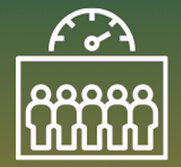
Capacity-Building:
Not all developing nations possess adequate capacities to address the myriad challenges posed by climate change. Consequently, the Paris Agreement places significant emphasis on enhancing climate-related capacity-building efforts in developing countries. It urges all developed nations to augment their support for capacity-building initiatives in these regions.
The Paris Agreement marked a historic moment in international efforts to address climate change, as it brought together 198 countries in a unified approach to tackle the global challenge. It emphasises the principle of common but differentiated responsibilities, recognizing that developed and developing countries have different historical contributions to climate change and capacities to address it.
The agreement has been successful in encouraging countries like Japan, China, and the EU to set carbon neutrality goals and embrace net zero targets (net zero means each country commits to reducing emissions close to zero).

Loss and Damage
While we need to take urgent action to reduce greenhouse gas emissions (mitigation) and adjust to and build resilience against the impacts of climate change (adaptation), loss and damage – a general term used in UN climate negotiations – refers to the unavoidable consequences of climate change on vulnerable communities particularly in the developing world, that either go beyond what they can adapt to or even if options exist, they may not have the resources to access them.
Loss and damage can be caused due to both extreme weather events like floods, cyclones, droughts and heatwaves, or slow onset events like sea level rise, desertification, glacial retreat and ocean acidification. It can be in the form of both economic and non-economic losses. Economic losses include for instance damage to infrastructure and disruption of supply chains; whereas non-economic losses, which are most devastating, include loss of precious lives, loss of culture, trauma of losing one’s home and being forced to migrate due to climate change. At COP27, developed countries agreed to the setting up of a fund to support developing countries from loss and damage, and at COP28 the decision to operationalise this fund was adopted by all countries. Since the adoption of the decision, around USD 700 million have already been pledged by several countries. While this is an important start, it is still the equivalent of less than 0.2% of the irreversible economic and non-economic losses developing countries are facing from global warming every year.

Global Stocktake
The Global Stocktake (GST) is a key component of the Paris Agreement, which is an international treaty on climate change. The Global Stocktake is a comprehensive and periodic assessment, aiming to evaluate the collective progress made by countries in addressing climate change and achieving the goals set out in the agreement. The first ever Global Stocktake of The Paris Agreement was held in Nov-Dec 2023 at COP28 in Dubai – seven years after The Paris Agreement had come into force.
Key aspects of the Global Stocktake include:
Assessment of Progress: The GST assesses the collective efforts of all participating countries in implementing their Nationally Determined Contributions (NDCs), which outline each country’s climate action plans, including measures to reduce greenhouse gas emissions (GHGs) and adapt to the impacts of climate change.
Comparison with Goals / Identification of Gaps and Opportunities: The assessment involves comparing the global efforts to the overarching goals of the Paris Agreement, such as limiting global temperature increases and enhancing resilience to climate change. It helps identify whether the collective efforts are on track to achieve the agreement’s objectives, where are the gaps, and what are the opportunities for improving the effectiveness of climate actions.
Adaptation and Mitigation Balance: The Global Stocktake assesses the balance between efforts to adapt to the impacts of climate change and mitigate GHGs. This ensures a comprehensive approach to addressing climate change challenges.
Overall, the Global Stocktake plays a crucial role in promoting transparency, accountability, and continual improvement in global climate efforts by providing a systematic and collective assessment of the progress made by countries.
 To Read
To Read
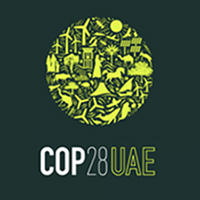
Explainer: What is COP28 and Why Is it Important?
In this explainer by the United Nations, learn about what is COP, the significance of COP28, and what is at stake.

COP28: Key Outcomes Agreed at the UN Climate Talks in Dubai
An in-depth analysis by Carbon Brief of all the key outcomes in Dubai – the COP28 Presidency – both of formal negotiations at COP28, such as on the Global Stocktake, and Loss and Damage; as well as of developments around COP28, such as the Global Cooling Pledge, Global Methane Pledge and Climate and Health Declaration.
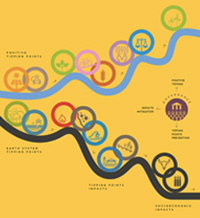
The Global Tipping Points Report
This report was launched at COP28, and while it highlights that at least five Earth system tipping points are likely to be triggered by global warming – including the collapse of major ice sheets and widespread mortality of warm-water coral reefs, it also makes six recommendations to change course fast, including coordinated action to trigger positive tipping points.
 To See
To See
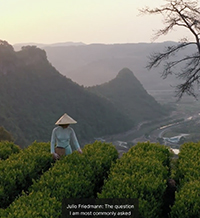
Ted Explores: A New Climate Vision
This special TED documentary examines the rapid technological revolution underway to address the climate crisis, with insights from a cross-section of speakers, opening up the possibility for a better future for all.
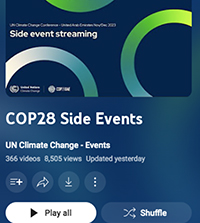
COP28 Side Events Playlist
This is a playlist of 375 side events that were held in Dubai during COP28. Side events are a form of panel discussions organised by various entities wherein the speakers from the scientific community, NGOs, Parties, and various other organisations offer insights and perspectives on the various aspects of climate change. Discussions on topics like: Accelerating innovation, Change through participation, Human rights, Sustainable finance, Fossil Fuels, Gender-just climate policy, Climate justice, Renewable energy solutions, and so on can be found in this playlist.
 To Listen
To Listen
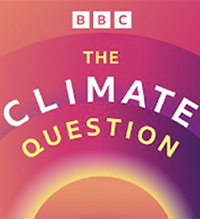
Podcasts on COP
BBC’s The Climate Question podcast episode on “What is COP” explains how COP works.
BBC’s The Climate Question podcast episode “Was this Year’s Climate Summit a Game-changer?” with perspectives from leading experts on climate change diplomacy.

A Global Mosaic of Climate Adaptation Solutions
Curated by the United Nations Environment Programme (UNEP), a collection of 11 case studies across geographies and sectors to accompany the launch of the Adaptation Gap Report 2023 (which released in November 2023 in the run up to COP28), highlighting the spectrum of climate challenges facing the world but also examples of the role adaptation measures can play in building resilient communities, ecosystems and economies.

How is Climate Change Affecting Our Mental Health?
COP28 is the first COP to have observed a dedicated day for climate and health, during which 143 signatories signed a Declaration on Climate and Health, which includes addressing the impacts of climate change on mental health and psychosocial wellbeing. In fact earlier in 2023, the Intergovernmental Panel on Climate Change (IPCC) 6th Assessment Report (AR6) also spotlighted for the first time the link between climate change and mental health. In this episode of BBC’s The Climate Question podcast, learn about how climate change impacts mental health.
 To Play
To Play
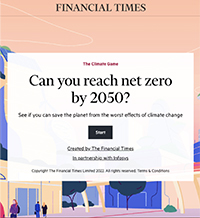
The Climate Game
Can you reach net zero by 2050? This game, created by the Financial Times in partnership with Infosys, is based on the emissions modelling developed in 2022 by the International Energy Agency (IEA). The scenarios used in the IEA’s “Net Zero by 2050” report were recalculated to track the temperature outcomes for specific pathways used in the game.
The phasing out of fossil fuels emerged as a focal point during COP28 discussions. However, is it accurate to portray fossil fuels as universally malevolent? How and when did the world’s focus shift towards a complete phase out of fossil fuels?
It all goes back to The Paris Agreement, which was adopted by 198 countries in 2015 and enforced in 2016. This agreement places significant emphasis on curtailing the increase in global average temperatures, aiming to keep it well below 2°C above pre-industrial levels and ideally limiting it to 1.5°C. Scientific studies, along with a specialised report published by the Intergovernmental Panel on Climate Change (IPCC) in October 2018, have scrutinised the science behind the 1.5°C threshold. The findings underscore that surpassing this threshold can have catastrophic consequences for our present and the well-being of future generations.
However, what is the linkage between 1.5°C, climate change, fossil fuels, and human beings?
As outlined in the 2018 Intergovernmental Panel on Climate Change (IPCC) Report, the primary cause of global warming is the release of emissions from fossil fuels. The combustion of these fuels releases substantial amounts of carbon dioxide, a greenhouse gas, into the atmosphere. These greenhouse gases trap heat in the atmosphere, ultimately causing global warming. In 2018, fossil fuels and industrial activities collectively contributed to 89% of global CO2 emissions.
Numerous scientific studies have consistently shown that various fuels emit distinct quantities of carbon dioxide (CO2) relative to the energy they generate upon combustion. Fossil fuels, such as coal, are noted for emitting the highest levels of CO2 per unit of energy produced. In fact, coal is currently identified as the most environmentally detrimental, contributing to over 0.3°C of the 1°C rise in global average temperatures.
Other fossil fuels, such as oil, when burned, emit a substantial amount of carbon, constituting approximately one-third of the world’s total carbon emissions. Additionally, recent oil spills have had a devastating impact on our ocean’s ecosystem.
Natural gas is also a fossil fuel. Although often advocated as a cleaner energy source compared to coal and oil, natural gas contributes to a fifth of the world’s total carbon emissions.
Worldwide emissions of carbon dioxide (CO2) from burning fossil fuels total about 34 billion tonnes (Gt) per year. About 45% of this is from coal, about 35% from oil and about 20% from gas.
What is disconcerting is that all fossil fuels are being combusted for human activity. Moreover, the sheer volume of annually generated CO2 is not being photosynthesized into oxygen at an equivalent pace. This surplus CO2 remains in the atmosphere, contributing to an increase in global temperatures.
The accumulation of CO2 is happening as carbon-based fossil fuels worldwide are being combusted and swiftly transformed into atmospheric CO2, for instance, in automobiles, residential and industrial furnaces, and electricity generation. Additionally, the gradual clearing of global forests further contributes to the greenhouse effect by diminishing the capacity of photosynthesis to remove atmospheric CO2.
The current average global temperature has already risen by 1°C. Exceeding a 1.5°C increase poses potential threats such as additional sea level rise, more frequent extreme weather events, loss of biodiversity and species, heightened risks of food shortages, deteriorating health conditions, and increased poverty affecting millions of people globally.
The IPCC issues a stark warning that fossil fuel emissions need to be halved in the coming decade to limit global warming to 1.5°C above pre-industrial levels. This urgency has spurred climate activists worldwide to call for a complete phase-out of fossil fuels, emphasising the critical nature of our future. Incremental steps may not suffice to reverse the existing damage; therefore, decisive measures are imperative across all levels to safeguard our planet.
However, the solution extends beyond policies and laws. At the core of all endeavours are individuals. It is people who must undergo a transformation in their behaviour. This is where ‘sustainable human behaviour’ becomes crucial. Each person has the capacity to modify their behaviour by embracing clean and green energy sources.
The founding President of SGI, Daisaku Ikeda, has written: “it is… important that grassroots movements develop opportunities that encourage a deeper understanding of the global environmental crisis.”
He has also written further: “…people must be empowered with courage and hope if they are to take those first concrete steps. Even if we establish agreed-upon ethics and paradigms of behaviour, unless an increasing number of people embody and practise these in their lives, the severe realities we face will not change. In other words, if ethics bear little connection to our individual lives or will, but are seen as merely a set of guidelines to be passively followed, an obligation imposed from without, they will not enable us to respond robustly to changing circumstances. They will be abandoned in the first crisis. It is for this reason that environmental ethics must be felt as a deeply personal vow and pledge, the fulfilment of which provides us with an inexhaustible sense of purpose and joy.”
Undoubtedly, by embracing ‘sustainable human behaviour’ in our daily lives and acknowledging the impact of our actions, we can safeguard our precious blue planet from irreparable harm.
Tapping into the power of the grassroots to build a world without disparities Poorvi Mehrotra | Young Women’s Division | Bengaluru
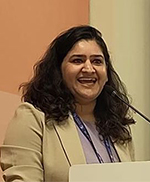
I am a Social Development professional working with an International NGO in Bengaluru, which focuses on Youth Development, Gender, Education and Climate Change. For the last 3 years, I have been working with young people to understand how urbanisation can be just and fair for all, especially for people from the most marginalised communities.
I joined Bharat Soka Gakkai as a voluntary member together with my family when I was in middle school. At the time, my family was facing severe financial hardships. Not having much understanding of the power of community at that time, I made sincere efforts to understand the basics of Soka humanism to boldly face the challenges of daily life.
Overtime, I was able to build a strong bond with my eternal mentor Daisaku Ikeda, the founding President of SGI, and through his writings, I learnt the significance of leading a life of purpose, a life dedicated to working for the happiness of others. As a result, my life got forged and I grew up to be a joyful and resilient person.
The challenges and sufferings I faced in my life as a youth allowed me to dream of building a world where there are no disparities, and dignity of all lives is respected. Hence, I joined the social development sector, not by chance, but deeply aware of my mission to work with young people and together change the destiny of our land.
My organisation works with young people on addressing Gender Inequality, Education and Climate Justice – issues that are most important to young people. Recently, through my work, I got the opportunity to represent the voices of young people at COP28 in the UAE.
The Conference of the Parties (COP) is the world’s largest global conference on climate change. As a first time attendee, I wanted to understand how decision-making takes place in such conferences – as these decisions impact each one of us. I also wanted to understand better how these conferences ensure equal representation of all voices, especially from the ones who get impacted the most from the changing climate.
I was very happy to observe that some significant commitments were made in this year’s COP. I could also make friends from all across the globe at COP28 who are taking charge as protagonists in their communities and are striving hard to actualise the policies into action. Seeing such inspired youth who are leading a life of such profound mission at the grassroots deeply inspired me. date.
I am even more determined to continue working with the communities at the grassroots level, ensuring that by 2030, we are able to actualize all commitments made to combat climate change. I am determined to ensure no life is left behind by ceaselessly advocating for Climate Education and Human Rights for all.
I will also consciously make efforts to hold dialogues with people on the steps we all can take individually towards addressing climate change and continue to expand my own life to develop a more sustainable lifestyle.
Dealing with the inconvenient truth of climate change with personal action Manavi Bhardwaj | Young Women’s Division | Goa

I understood the extent of the climate crisis for the very first time in 2007, when I saw the documentary ‘An Inconvenient Truth’. It was then that I decided to build my academic foundation and professional career in sustainability. Over the years, I had opportunities to dive deeper into the impacts of climate change – such as my Bachelor’s thesis which examined the impact of temperature rise on coral reproduction, and then my first job where I delved into the impacts of climate change on biodiversity. As a student I also actively engaged in volunteering and extracurricular activities that focused on raising awareness on climate change.
Deep in my heart I knew that since humans have created sustainability challenges such as climate change, we also must be the ones to solve them. It wasn’t until I encountered Bharat Soka Gakkai and the writings of Daisaku Ikeda in 2011, that I was able to start valuing the interconnectedness of all life and recognising that the root cause of environmental destruction resided in the hearts and minds of human beings themselves. Daisaku Ikeda’s writings reinforcing the power of one single individual, further helped me develop conviction in my own life to be able to play the role of a protagonist and not a bystander, in my own unique way.
I currently work for an organisation that is committed to mobilising funding for climate action in India, and had the opportunity to represent my organisation at COP28. In the run up to COP28, this involved liaising with various organisations in India and globally, as well as the COP28 Presidency team in Dubai, to identify partnership opportunities with them that would help platform leading Indian voices from civil society and the funding community at various events at COP28, and also enable cross-learning and exchange with other emerging economies of the global south such as Brazil, Indonesia and South Africa.
Leaving no stone unturned, I worked long hours in the months before COP28, seeking partnership opportunities, thoughtfully nurturing bonds of understanding and trust with various organisations, and contributing to the planning and design of various events my organisation was supporting. These efforts bore fruit at COP28, as we were successfully able to bring in Indian and global south perspectives into conversations that usually have no or limited representation from the developing world. This reinforced to me the need to have stronger representation of those most impacted by climate change – be it climate vulnerable countries at a macro level or climate vulnerable communities – in dialogues that are aimed at shaping the future of humanity and the planet, so that no one is left behind.
My experiences at COP28 made me reflect on the power of solidarity. The scale at which so many people gathered together around a common agenda, and the energy that created, made me feel extremely hopeful about the potential for good that can be unleashed when people come together towards a common vision, which also helps transcend differences. I was especially moved by sharings of young people.
An indigenous youth implored us to base our actions on indigenous wisdom that does not separate humans from other forms of nature, a youth from the Pacific Islands expressed that the perils of sea level rise due to climate change not only threaten the loss of homes but their sense of belongingness and cultural identity to the land they and their ancestors have thrived in, and a Sudanese refugee drew attention to the ways in which climate change exacerbates the impact of wars and conflicts.
Listening to the stories of these individuals was a strong reminder that the climate crisis at its core is a crisis stemming from relationship breakdowns at multiple levels – with ourselves, with each other, and with nature. Even if we have all the technological solutions to solve the climate crisis and other sustainability challenges, till we don’t heal these relationships, there will be no lasting change.
I am now even more determined to proactively engage in the work of opening up the hearts and minds of policy makers and business leaders towards this realisation, as the decisions they make can have far reaching ripple effects.
Transforming our behaviour to transform the world Shruti Nangia | Young Women’s Division | Delhi

The world’s weather is changing every year. We can see and feel the impact of this in our daily lives. In 2023, in India alone, we witnessed an alarming number of weather-related natural calamities. The intense heat wave that swept across India, the heavy rainfall during the monsoon season that caused massive flooding and landslides in many states of North India, the Himalayan floods in August 2023, the Nagpur floods in September 2023, the Sikkim flash floods in October 2023, Cyclone Michuang – all these caused massive destruction and deaths in India throughout the year. While at one end India was witnessing massive flooding and heavy rainfall, on the other end, India also witnessed drastic effects because of El Niño. As per reports, in 2023, the El Niño weather pattern caused India’s monsoon rainfall to reach a five-year low. This made August 2023 the driest month in over a century in India. All these climate disasters impact not just the weather, but livelihoods, as well as the mental and physical health of all people.
As a youth, I have always pondered over how we can bring about lasting change in our society and what we can do to inspire people to change our ways of living. Despite all scientific data being available, why do we still struggle in connecting the dots between all the natural calamities, health and lifestyle changes that are happening in our lives, and climate change?
I joined Bharat Soka Gakkai as a voluntary member in 2001 while I was in school. The concepts of ‘value creation’ and ‘human revolution’ resonated strongly with me. Through BSG, I found my eternal mentor in Daisaku Ikeda – the founding President of SGI. His writings shaped my thinking to focus on inner transformation and become an agent of change for society rather than worrying or waiting for circumstances to get better by themselves.
In 2019, I joined BSG as a full time staff with the heart to work for the happiness of all people. I was grateful to represent BSG at COP28 in UAE in Nov-Dec 2023 as a first-time attendee. I was very keen to learn as much as I could to understand the mechanics and discussions that happen at COP so that BSG can participate more proactively in these conferences in the future and bring a positive difference in society.
This is the aim of Bharat Soka Gakkai – to actualise the vision of our founding President Daisaku Ikeda and ensure that no life is left behind. It was precisely with this intent that BSG had launched the ‘BSG for SDG’ initiative in 2021.
As a part of the ‘BSG for SDG’ team, we are taking various steps in the Indian society to strengthen awareness on the SDGs, on the role of each person in creating a change. We are focusing on promoting a greater understanding of ‘sustainable human behaviour’, which highlights how our daily behaviour affects the world at large. We are also focusing on empowering individuals to take responsibility and be the agents of change for protecting our planet rather than waiting for corporations or policies to do the job.
In all the sessions and talks that I personally attended at COP28, I was extremely happy to see that almost every speaker spoke about the importance of behavioural change as an important measure in preventing climate change. Whether the session was on technology and innovation, or on climate finance, or on the role of youth, at the end of the day, it is people and their daily behaviour that creates an impact – whether for good or for bad. This reconfirmed the point of how crucial it is for each human being to work on their inner transformation, to adopt ‘sustainable human behaviour’.
Additionally, what also impressed me at COP28 was to see the wonderful passion and energy of the youth, the Indigenous peoples, the speakers from various walks of life who are working so hard at the grassroots level to bring a difference in society. I felt that so long as people of such enthusiasm and clarity of mind are there in society, we will definitely be able to bring about a difference in the world.
I am determined to empower countless youth in society, fostering many ‘agents of change’, who will work in the greatest solidarity to create a ‘New Age in India’, a ‘New Global Civilization’ by 2030, and further advance the ‘BSG for SDG’ initiative to ensure that each life is able to live with dignity and respect.
 SDG Tip for Daily Life
SDG Tip for Daily Life

20 Ways to Reduce Your Reliance on Fossil Fuels
Are policy-makers and corporations the only ones responsible for phasing out fossil fuels? It may seem so, but it is absolutely not the case! Ordinary individuals can also make subtle changes in their daily life to help limit the rise of global temperature by reducing their dependence on fossil fuels. Here are 20 simple things you can do towards the same.
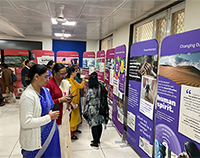
Updates
BSG Hosts The SOHA Exhibition And Forms SDG Clubs At Various Educational Institutes
The ‘Seeds of Hope & Action (SOHA): Making the SDGs a Reality’ – a sustainability focused exhibition was organised by BSG at various educational institutes, including: District Institute of Education & Training, Moti Bagh & Rajinder Nagar branches, Shiv Nadar University Greater Noida; among others. BSG has conducted a total of 106 SOHA Exhibitions across schools and colleges till date.
SDG Club was also formed by BSG in Ruh Continuum School, Coimbatore. With this, the total number of SDG Clubs formed by BSG goes up to 19 till date.
BSG is conducting the SOHA exhibition and forming SDG Clubs in institutes with a vision to advance ‘Sustainable Human Behaviour’ among the students, and to foster a culture of sustainability among the younger generation.
Read moreContact Us
 Any queries or suggestions regarding the newsletter can be addressed to sdg@bharatsokagakkai.org
Any queries or suggestions regarding the newsletter can be addressed to sdg@bharatsokagakkai.org
 To know more about the ‘BSG for SDG’ initiative, visit the BSG for SDG website
To know more about the ‘BSG for SDG’ initiative, visit the BSG for SDG website
 Download the ‘BSG for SDG’ mobile app with the carbon footprint calculator
Download the ‘BSG for SDG’ mobile app with the carbon footprint calculator
